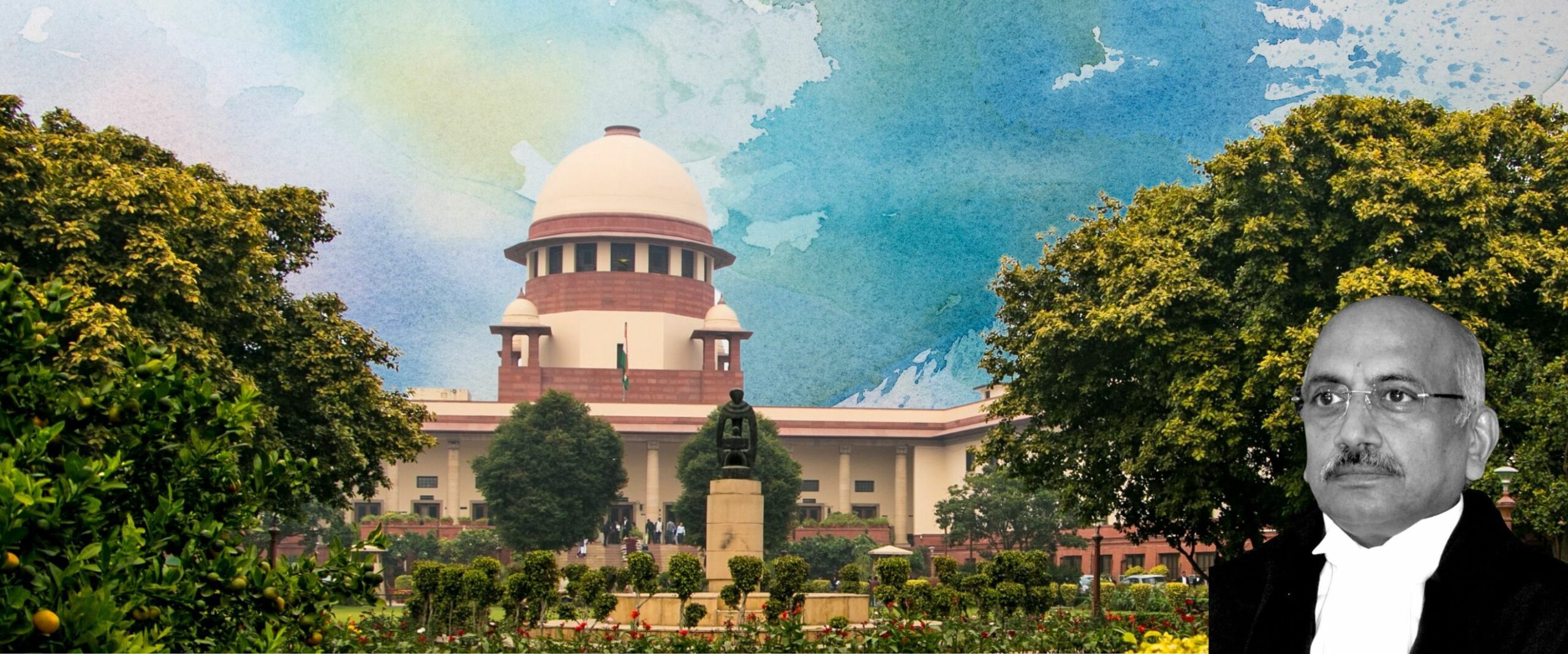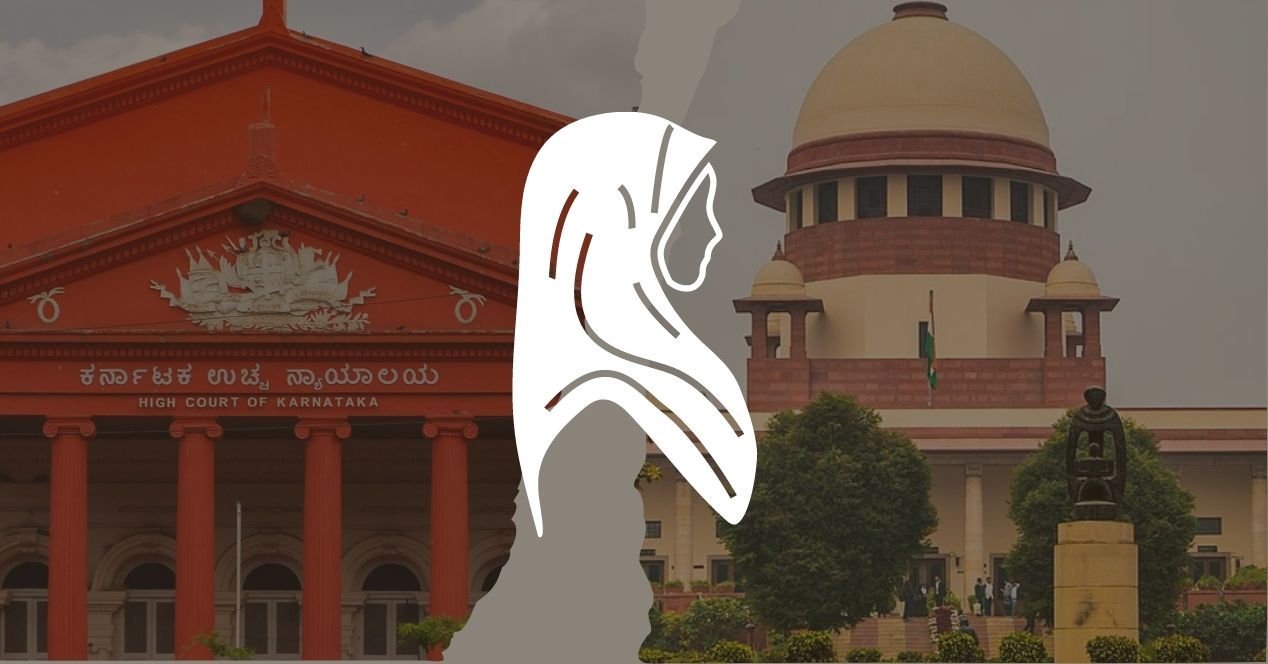Analysis
Justice Gupta’s Notable Judgments: Hijab Ban, Remission Policies and Caste-based Crimes
Justice Hemant Gupta authored impactful Judgments in criminal law cases and a controversial Judgment on his penultimate day at the SC.

Justice Hemant Gupta will retire on October 16th, 2022, after serving a tenure of nearly four years at the Supreme Court. On his penultimate working day he authored one the most controversial Judgments of the year in the Hijab Ban case. Justice Gupta upheld the Karnataka government’s Hijab ban in a split decision alongside Justice Sudhanshu Dhulia, who held that the ban was unconstitutional. Any conversation about Justice Gupta’s legacy at the Supreme Court will begin with this, his last Judgment.
During his time at the SC he was part of two Constitution Bench decisions and authored a short concurring Judgment in one of them. He has authored impactful judgments in a wide range of subject matters, especially in criminal law cases.
Karnataka Hijab Ban is a Reasonable Restriction on Freedom of Religion
In February 2021 the Karnataka government issued an Order banning students from wearing the Hijab in educational institutions. Muslim students challenged the Hijab ban at the Karnataka High Court that same month claiming that it violates their Rights to Privacy, Religious Freedom and Freedom of Expression. The Karnataka HC upheld the ban on March 15th, 2022, stating that wearing the Hijab was not an ‘essential religious practice’ and was not protected by the Freedom of Religion under Article 25 of the Constitution of India. Read a summary of the Judgment here.
On the same day, the Karnataka HC’s decision was challenged at the Supreme Court. The case was heard by a Bench comprising Justices H. Gupta and S. Dhulia. On October 13th, 2022 the Bench delivered a split verdict. Justice Gupta, in his last Judgment at the SC, upheld the Hijab ban and stated that the Karnataka HC’s decision was correct.
SC Cannot Convict Accused for a Term Less Than Minimum Prescribed Sentence
In May 2012 the Madhya Pradesh High Court reduced the sentence of Mr. Vikram Das who was convicted Under Section 3(1)(xi) of the Scheduled Castes and Scheduled Tribes (Prevention of Atrocities) Act, 1989. Mr. Das appealed his initial conviction but only asked the Court to consider reducing the sentence. The minimum punishment under Section 3(1) of the Act is six months imprisonment. However, the Madhya Pradesh HC reduced the sentence to the time served in custody while the case was ongoing. The State of Madhya Pradesh challenged this decision at the SC in August 2013.
The case was heard by Justices H. Gupta and D.Y. Chandrachud. Justice Gupta authored the Judgment for the Bench which was delivered in February 2019. In cases where a legislation has provided a minimum sentence and the accused is not disputing their guilt, he held that the HC cannot cannot award a sentence that is less than the minimum. He also held that Article 142, which allows the SC to pass any Order in the interest of doing ‘complete justice’, cannot be used to reduce this sentence past the minimum either.
Reservations for the Maratha Community Are Unconstitutional
In November 2018 the Maharashtra State government enacted the Socially and Economically Backward Classes Act. The Act provided 16% reservations to the Maratha community in State educational institutions and public service appointments. As a result, reservations in the State crossed the 50% limit established by the SC in Indra Sawhney (1992). Multiple challenges to the Ac were filed in the Bombay HC. In June 2019, the Bombay HC upheld the Act and the reservations provided to the Maratha community. However, they reduced the quota to 12% and 13% in educational institutions and public employment respectively.
In July 2019, multiple petitions challenging the Bombay HC’s decision to uphold the Act. The case was referred to a Constitution Bench in September 2019. Justice Gupta was a member of the Bench. He agreed with the unanimous decision to strike down the Maratha Reservations as unconstitutional for violating the 50% limit. Further, he agreed with Justices L.N. Rao’s and R. Bhat’s observation that the Constitution (102nd) Amendment Act, 2018 took away State’s powers to identify backward classes to provide reservations.
Verbal Caste-Based Abuses Made in Private Are Not Punishable
In the midst of a land dispute in Uttarakhand, a person illegally entered the house of another person who belonged to a Scheduled Caste. They then verbally abused them using caste-based slurs and remarks. The Scheduled Caste member filed a case against them under Section 3(1)(r) of the Scheduled Castes and Scheduled Tribes (Prevention of Atrocities) Act, 1989. This provision punishes intentional public humiliation of intimidation of a member of a Scheduled Caste or a Scheduled Tribe member.
The accused attempted to quash these charges at the Uttarakhand High Court but their plea was dismissed in June 2020. They then appealed this decision at the SC where a Bench of Justices L.N.Rao, H. Gupta and A. Rastogi heard the case. Justice Gupta authored the unanimous decision in November 2020 which held that the abuses were made privately, inside a building and not ‘in public view’ as required by Section 3(1)(r). The Bench quashed the allegations based on this provision and dismissed the appeal in favor of the accused.
Cannot Strike Down Legislation Due to Possibility of Misuse
In April 2021 the Union government passed the Tribunals Reforms (Rationalization and Conditions of Service) Ordinance. The Ordinance prescribed the terms of service, maximum tenure and the appointment process for Tribunal members. It also gave the Union additional control over the administration of Tribunals. The Madras Bar Association challenged the Ordinance in the same month. The case was heard by a 3-Judge Bench comprising Justices L.N. Rao, R. Bhat and H. Gupta and was decided in July 2021.
Justices Rao and Bhat struck down the Ordinance, stating that it threatened the judicial independence of Tribunal members and that it was contrary to past SC decisions which held that the terms of Tribunal members should be for five years. However, Justice Gupta dissented. He stated that the Court could not dictate what should go into a legislation, nor could they strike down legislation based on the possibility of future misuse.
Choice to Apply One Remission Policy Over Another Depends on Date of Conviction
In May 2020 the Punjab & Haryana HC delivered an Order which directed the State government to consider drafting a new remission policy that was based on the Governor’s power to grant remission to convicted prisoners under Article 161 of the Constitution. In the meantime, the HC allowed the State government to continue applying the 2008 remission policy which did not require the Governor’s approval to grant remission. However, the HC emphasised that the government must strictly follow the restrictions mentioned in Section 433-A of the Code of Criminal Procedure, 1973. This Order was delivered while the HC was considering the case of a prisoner who was convicted in 2010 of an offence for which the death sentence is a possible punishment.
The prisoner and the State government both challenged the Order at the SC in August 2020. A Bench comprising Justices H. Gupta and A.S. Bopanna had to decide if the 2008 remission policy should apply to the prisoner or if the State’s 2002 remission policy should be applied instead. The 2002 policy hinged on the Governor’s power to remit a prisoner’s sentence under Article 161 based on the aid and advice of the ‘appropriate’ government.
In August 2021, Justice Gupta authored the Judgment which held that the 2008 policy superseded the 2002 policy, so the latter would not apply to prisoners who were convicted after August 13th, 2008. As the prisoner in question was convicted in 2010, the 2008 policy would apply to them. However, the prisoner had only served 12 years of his sentence. As a result, they would not be eligible for remission as Section 433-A of the CrPC does not allow remission for prisoners who had served less than 14 years of imprisonment for a crime where death sentence is a possible punishment.
Precedential Value of Judgment Based on Bench Strength, Not Size of Majority
Justice Gupta was a member of the 5-Judge Constitution Bench to decide if sales tax could be imposed on ‘Pan Masala & Gutka’ goods. The case was referred to a Constitution Bench because there were two supposedly conflicting 3-Judge Bench SC decisions on the subject. While one of the cases was decided unanimously, one of the Judges in the other case had dissented. The petitioners, Shanti Fragrances Private Limited, argued that the unanimous Judgment had more value for deciding future cases on the subject than the Judgment where one of the Judges dissented.
On September 20th, 2022, Justice Gupta authored a concurring opinion which was confined to this specific issue. He agreed with Justice Banerjee’s majority opinion which held that the number of Judges in the majority did not matter. The total number of judges on the bench should be the only consideration. He referred to Justice N.M. Miabhoy’s dissenting opinion State of Gujarat v Gordhandas Keshavji Gandhi (1962) which stated that a Judgment is a result of discussions and deliberations between all the judges on the bench, not just the majority. Read the summary of the entire Judgment, including Justice Gupta’s opinion, here.




